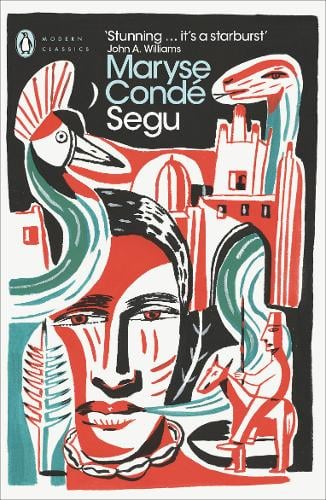






Guadeloupe-born author Maryse Condé, who was renowned for epic books tackling the legacy of slavery and colonialism in Africa and the Caribbean, has died at the age of 90.
Dany Laferrière, a Haitian-Canadian novelist and journalist, paid homage to the Grande Dame of Caribbean literature. Laferrière reflected on the essence of Condé’s work, saying, “Your books were made of these trees which dance in the eternal summer of our
Who was Maryse Condé?
Born in 1934 in Pointe-à-Pitre, Guadeloupe, as the youngest of eight children, Maryse Condé’s journey was as diverse as the characters in her novels. She spent a significant portion of her career teaching Francophone Literature at Columbia University in New York, alongside stints at universities around the globe including the University of California, Berkeley; UCLA; the Sorbonne; the University of Virginia; and the University of Nanterre. Condé’s rich experiences living in West African countries, especially Mali, infused her narratives with authenticity and depth, culminating in her worldwide bestseller “Segu” and earning her the African Literature Prize among other prestigious French accolades.
What awards did Maryse Condé win?
She was the inaugural recipient of the New Academy Prize in Literature in 2018, an award established as an alternative to the Nobel Prize in Literature amid controversy that year. She was celebrated for her ability to “describe the ravages of colonialism and post-colonial chaos in a language which is both precise and overwhelming.” Her storytelling prowess was further acknowledged when she was shortlisted for the International Booker Prize twice; first in 2015 for her entire body of work, and again in 2023 for her novel “The Gospel According to the New World.”
The International Booker Prize 2023 panel lauded Condé as “one of the greatest Francophone authors and the great voice of the Caribbean,” praising her as a gifted storyteller whose work captivates readers with the charm of childhood fables.
Her writing process
Condé’s narrative voice was not just limited to her novels. In a 2023 interview, she shared insights into her writing process for “The Gospel According to the New World,” a task made challenging due to her loss of vision. Condé revealed, “It took me roughly a year and because of my loss of vision I had to dictate the text to a friend as well as my husband. This obliged me to write each chapter in my head. I was sensitive to sound and meaning because the writer is also a musician.”
Best books by Maryse Condé
Her works often explore themes of race, gender, and colonialism. Here are some of the best-known and most celebrated books by Maryse Condé.
- “Segu” (1984). This historical novel is set in the 18th and early 19th centuries in the Kingdom of Segu (present-day Mali). It explores the impact of the slave trade, Islam, and European colonialism on African societies.
- “Crossing the Mangrove” (1989). In this novel, Condé uses a non-linear narrative and multiple perspectives to tell the story of a man named Francis Sancher, whose mysterious death in a small village in Guadeloupe leads to a deep examination of his life and the community’s secrets.
- “Windward Heights” (1995). This is Condé’s reimagining of Emily Bronte’s “Wuthering Heights”, set in Cuba and Guadeloupe at the turn of the 20th century. It revisits themes of love, revenge, and racial and social inequality.
- “I, Tituba, Black Witch of Salem” (1986). This novel is a fictional autobiography of Tituba, an enslaved woman who was one of the first accused in the Salem witch trials. Condé gives voice to a figure marginalised by history, blending historical facts with magical realism.
Read: Benjamin Zephaniah: 7 books and poems to remember legacy
- “The Children of Segu” (1985). A sequel to “Segu”, this novel continues the story of the Traore family, focusing on the younger generation as they navigate the challenges posed by the spread of Islam, the slave trade, and European colonisation in West Africa.
- “Who Slashed Celanire’s Throat?” (2004). A blend of mystery, historical fiction, and magical realism, this novel tells the story of Celanire—a woman who arrives in the French colony of Guadeloupe with a scar on her neck and a mysterious past, uncovering secrets and stirring the community.
- “Heremakhonon” (1976). The novel explores themes of identity, colonial legacy, and cultural displacement through the experiences of Veronica, a Caribbean woman seeking belonging and purpose in West Africa.
Her work provides deep insights into the complexities of Caribbean societies, colonial legacies, and the human condition.
This article contains affiliate links via Bookshop.org in which we may receive a small commission at no extra cost to you, in order to support local bookshops. We have not been commissioned to review books and services.
Make a one-time donation
Make a monthly donation
Make a yearly donation
Choose an amount
£5.00
£15.00
£100.00
£5.00
£15.00
£100.00
£5.00
£15.00
£100.00
Or enter a custom amount
Your contribution is appreciated.
Your contribution is appreciated.
Your contribution is appreciated.
DonateDonate monthlyDonate yearly
About How To Be Books’ Editorial Process
We uphold a strict editorial policy that focuses on factual accuracy and relevance. Our content is meticulously reviewed by an experienced editor to ensure compliance with the highest standards in reporting and publishing. We avoid commissions and are explicit about any affiliate links and partnerships.
